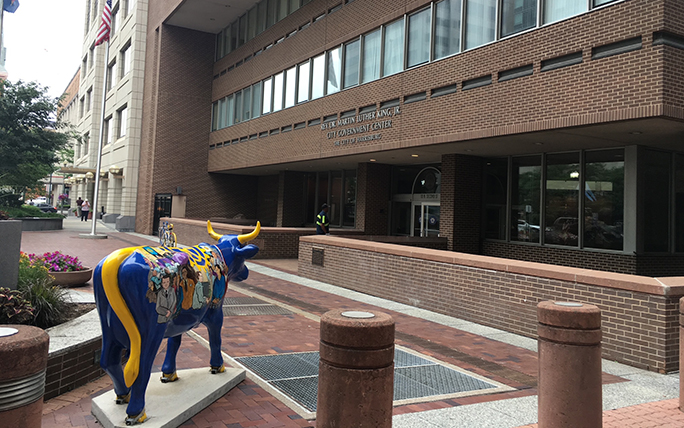I invariably get mail from some upset readers when TheBurg writes on two issues.
The first is when we mention “Vision Zero,” Harrisburg’s plan to make its streets more walkable and eliminate pedestrian fatalities.
The second is when we report on the city’s “extraordinary” taxing ability. That’s the subject of this editorial, so, I suppose, let ‘er rip.
Recently, the state legislature passed, and Gov. Tom Wolf signed, a fiscal code bill that allows Harrisburg to retain its current earned income and local services tax rates, which are above those typically permitted for a third-class city in Pennsylvania.
Combined, these taxes give the city $12.4 million more in annual revenue than it would have otherwise, money that city officials regard as essential to paying down debt while continuing to provide basic services to residents, workers and visitors.
Without these funds, Harrisburg faced the prospect of falling off the “fiscal cliff” in a few years, when this extraordinary taxing ability would have expired. The city now has extra time and extra money to exit Act 47 and build from there.
For this, many people deserve credit, starting with the mayor and City Council, continuing to the city’s lobbying firm, Maverick Strategies, and ending with the governor and legislature. Kudos to all involved—it was an outcome that I regarded as highly unlikely until it happened.
Having said this—I actually sympathize with commuters who may feel that they shouldn’t have to pay extra to help the city balance its books.
Harrisburg’s fiscal calamity originated decades ago with the profligate Reed administration, which never met borrowed money it didn’t like. And then, instead of repairing the city’s obsolete sewer system, it bought museum artifacts. Instead of fixing roads, it built a stadium.
Ultimately, however, I’m a pragmatist, and I realize that there were no good options outside of extending the city’s taxing authority. Most of the extra tax actually hits Harrisburg residents, especially those like me who both live and work in the city. But, yes, commuters will have to continue to pay an extra $104 a year for the next decade and another $52 a year for five years after that.
I’ve asked myself how I’d feel if the shoe were on the other foot. What if I worked in, say, Camp Hill, and had to fork over an extra $2 a week to that borough? For me, the answer is easy—I’d be fine with it. A total of $156 a year to support the services I consume or might need—roads, police, fire, health inspections, etc.—over some 2,000 annual working hours seems like a fair price to pay.
But, in Harrisburg, the situation is much more pressing. First, there’s the fact that the city’s main employer, the state government, pays no property tax. That leaves a small, poor city in the bizarre position of needing to support its humongous, well-resourced occupant.
The larger issue, though, is that the extra taxing authority truly is essential. It’s the difference between a reviving capital city and a suffering one, a promising future and a bleak one. The city now can feel confident that, at the very least, it can retain its current service levels as it continues to pay down debt. At the best, it can refinance its debt, pay it off quicker and spend more money on today’s needs, not those from 1997.
I was actually floored that a majority of the Republican-controlled legislature voted in favor of helping Harrisburg, but it did. As someone who cares deeply about the city’s future, I am grateful to those who engineered and passed this vital financial resolution.
Lawrance Binda is co-publisher and editor-in-chief of TheBurg.
Support quality local journalism. Become a Friend of TheBurg!




